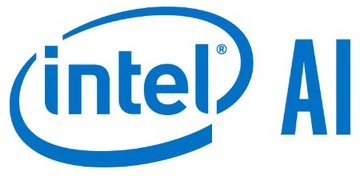Guidelines
Conflict of Interests
To make the review process fair and free of conflicts of interest, we will recruit a diverse pool of reviewers and Area Chairs (ACs) and commit to ensuring no conflicts in paper assignments as stated in the guidelines.The reviewing process will be double-blind and will be administered through Microsoft CMT. Many of the mechanisms to filter out conflict of interests are built into CMT, and area chairs will additionally confirm that no conflict of interests exist before the review process starts.
Conflicts of interest include (but are not limited to) situations in which:
- The reviewers work at the same institution as one of the authors.
- The reviewers have been directly involved in the work and will be receiving credit in some way. If they are a member of the author's thesis committee, and the paper is about his or her thesis work, then the reviewers were involved.
- The reviewers suspect that others might see a conflict of interest in your involvement.
- The reviewers have collaborated with one of the authors in the past three years (more or less). Collaboration is usually defined as having written a paper or grant proposal together, although you should use your judgment.
- The reviewers were the MS/PhD advisor of one of the authors or the MS/PhD advisee of one of the authors. Most funding agencies and publications typically consider advisees to represent a lifetime conflict of interest.
- If the reviewers recognize the work or the author and feel it could present a conflict of interest, they will be asked to contact the Area Chair using CMT as soon as possible so he or she can find someone else to review it.
On top of the automatic (by CMT) and manual (by ACs) management of conflict of interests, reviewers will be asked that if they are assigned a paper where their review would create a possible conflict of interest, they should return the paper and not submit a review.
FAQs
Is there a minimum number of papers I should accept or reject?No. Each paper should be evaluated in its own right. If you feel that most of the papers assigned to you have value, you should accept them. It is unlikely that most papers are bad enough to justify rejecting them all. However, if that is the case, provide clear and very specific comments in each review. Do NOT assume that your stack of papers necessarily should have the same acceptance rate as the entire conference ultimately will.
Can I review a paper I already saw on arXiv and hence know who the authors are?Yes. See next bullet below for guidelines.
How should I treat papers for which I know the authors?Reviewers should make every effort to treat each paper fairly, whether or not they know who wrote the paper. For example: It is Not OK for a reviewer to read a paper, think "I know who wrote this; it's on arXiv; they're usually quite good" and accept paper based on that reasoning. Conversely, it is also Not OK for a reviewer to read a paper, think "I know who wrote this; it's on arXiv; they're no good" and reject paper based on that reasoning.
How should I treat arXiv papers?ArXiv papers are not considered prior work since they have not been peer reviewed. Therefore, you should review your AISG workshop short papers independently as if the ArXiv papers didn't exist. Citations to these papers are not required and failing to cite or beat performance of arXiv papers are not grounds for rejection. For example:
- It is Not OK for a reviewer to suggest rejection for not citing an arXiv paper or not being better than something on arXiv.
- It is Not OK to accept a paper solely because it performs better than something on arXiv.
- It is Not OK to reject a paper solely because it performs worse than something on arXiv.
- It is Not OK to regard arXiv as a standard for the state of the art, because it is not reviewed. This applies *whoever* wrote the arXiv paper.
- It is Not OK for a reviewer to reject a paper solely because another paper with a similar idea has already appeared on arXiv. If the reviewer is worried about plagiarism they should bring this up in confidential comments to the AC.
- It is OK for a reviewer to suggest an author should acknowledge and be aware of something on arXiv.
- It is OK for an author to decline to acknowledge something on arXiv (because it has not been reviewed and so may not be right).




